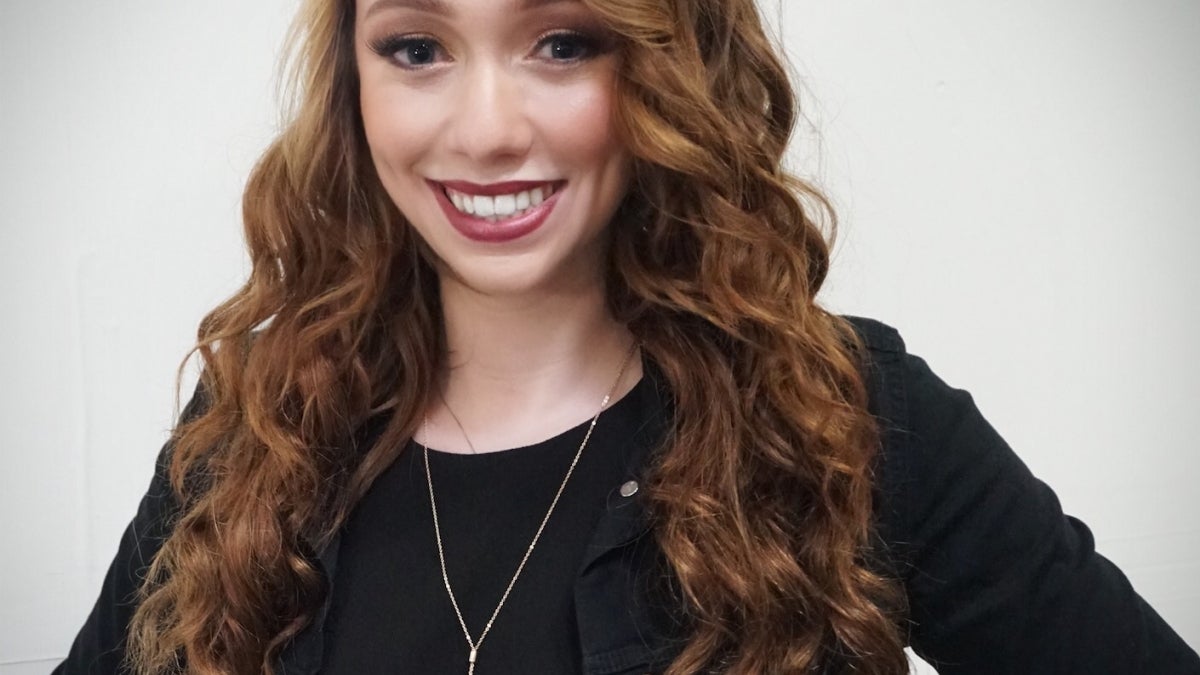Seeing a need, graduating senior Kaitlyn Felix studied Spanish to be a better doctor

Graduating senior Kaitlyn Felix wants to be a surgeon someday, but uses Spanish to help her connect with patients.
Editor’s note: This is part of a series of profiles for spring 2018 commencement.
Graduating senior Kaitlyn Felix dreams of becoming a surgeon someday. To help her achieve that goal, however, she didn’t just study health sciences. She studied Spanish at the School of International Letters and Cultures.
“I’ve been a CNA (Certified Nursing Assistant) since high school,” Felix said. “A lot non-English speakers are your patients. It’s great to have a medical background and a Spanish background. I’ve taken two or three classes that had a Spanish medical language frame.”
Felix has substantial experience in both medicine and Spanish. Spanish is her first language and the language her family speaks at home. Besides working as CNA, she interned with a pediatric surgeon last summer and was her grandfather’s caregiver while he battled cancer and dementia.
Blending the two disciplines made Felix better at both, and prepared her to work, research, study and succeed at ASU.
“It’s almost like learning another language. Learning the body parts, the tools, the correct way to form a question to a patient. It’s been really interesting and helpful to me as I worked through the medical field all through college,” Felix said.
She has found that speaking Spanish has been especially helpful while practicing medicine in the Southwest, enabling her to connect directly with patients, as opposed to always need a translator. That connection leads to trust, especially dealing with pediatrics.
“It was nice to have to have that language barrier be broken. Obviously they’re there for kind of a scary situation. It was with family, obviously with children most of the time,” Felix recalled. “Their face would light up, like ‘Oh my God, someone speaks Spanish here. That’s great; I’ll know what’s going on.’”
At SILC, as she balanced her health science studies and Spanish minor, she found the faculty responsive, enthusiastic and supportive. She said that all SILC staff “really take the time to get to know their students … they actually seem to care about their work.”
Now applying to medical school, Felix wants a program that gives back to underserved communities. She has found her cultural competence to be a professional benefit and wants a program that expands on it.
“Cultural competency is a big thing where we’re seeing problems in the medical field,” Felix said. “Understanding culture, understanding language barriers … it might increase lifestyle and medical advice. I think it’s important to be interdisciplinary … every case is different.”
SILC advisers would help Felix plan out her semesters. This meant focusing on medical classes at one point, then getting ahead in language classes when she had class openings. Felix accomplished all this while also holding down a job.
Felix said that while balancing the two programs was challenging, she succeeded by reminding herself that she was not just working, but working toward something.
“There’d be late nights, super early mornings, lack of sleep, lack of food, but it’s one more day closer to medical school, one more day closer to becoming a doctor, one more day closer to graduation. And graduation is a week from now,” Felix said. “So I made it.”
More Health and medicine

Fighting the fungus among us
It starts with a spore.When inhaled, spores of the coccidioides fungus can cause coccidioidomycosis — better known as valley…

$5 million gift to provide scholarships for new ASU medical school students
A $5 million gift from longtime Arizona State University donor Annette Beus and her family will help provide scholarships for 72…

The science of sibling dynamics: Why we fight, how we relate and why it matters
We have Mother’s Day, Father’s Day and even Grandparents’ Day. But siblings? Usually they get a hand-me-down sweatshirt and, with…

